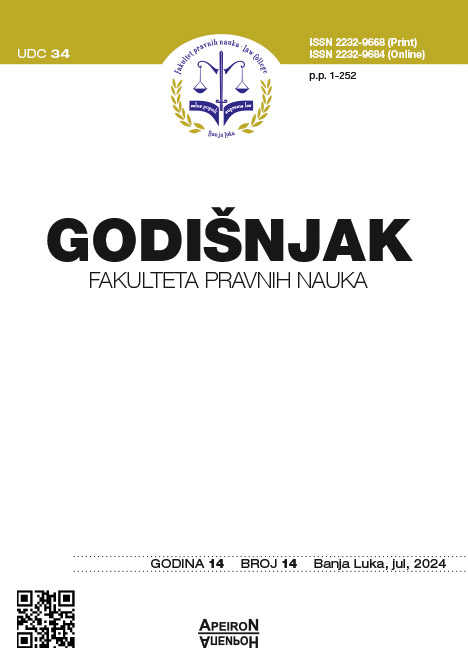Detection and Suppression of the Criminal Offense of Abuse in Relation to Public Procurement
DOI:
https://doi.org/10.7251/GFP2414147RKeywords:
criminal offence, public procurement, detection, suppressionAbstract
The criminal offence of abuse in connection with public procurement belongs to the newer criminal offences against payment transactions and business operations with elements of corruption. According to positive regulations, the state is obliged to open a tender for its own needs and the needs of companies in its majority ownership for the purpose of procurement of goods, provision of services and implementation of public works above a certain monetary amount, which would guarantee transparency and legality. However, in practice, it has been shown that public procurement is in the zone of high risk of violating the law and good practices. A very complex public procurement procedure and an increasingly pronounced conflict of interest between public office holders and the business community, as well as other important factors, have caused a large number of abuses in this area. Recognizing the dangers of this criminal phenomenon, in December 2023, Montenegro criminalized abuse in connection with public procurement in the group of criminal offences against payment transactions and business operations. The Criminal Code foresees seven forms of this delict. Being of the first form includes the submission of an offer based on false data or an illegal agreement with other bidders or the undertaking of another illegal action by the perpetrator with the intention of influencing the decision of the public procurement authority. The second form includes the execution of all three forms of the criminal offence of abuse of official position by the perpetrator who violates the laws in this area, causing damage to public funds. If the perpetrator adjusts the terms of the public procurement to a certain entity or enters into a contract with a bidder whose offer is in contradiction with the terms of the tender documentation, he commits the third form of this tort. The fourth form includes types of abuse of official position by the perpetrator who gives, takes over or contracts jobs for his activity or the activity of a person in relation to which there is a conflict of interest. A more serious form of this delict exists if it was committed in connection with public procurement whose value exceeds the amount of one hundred thousand euros. A special form is prescribed if the act was committed to the detriment of the financial interests of the EU. The privileged form is prescribed in paragraph 7 of Article 272c and provides for the possibility of exemption from punishment for the perpetrator who voluntarily reveals that the offer is based on false data or on an illegal agreement with other bidders or the perpetrator has taken other actions with the intention of influencing the decision-making of the contracting authority before that the public procurement contract is concluded. The methodology for detecting this criminal offense is based on the investigative and operational practice of the police and the State Prosecutor’s Office in reconnaissance and investigation.
